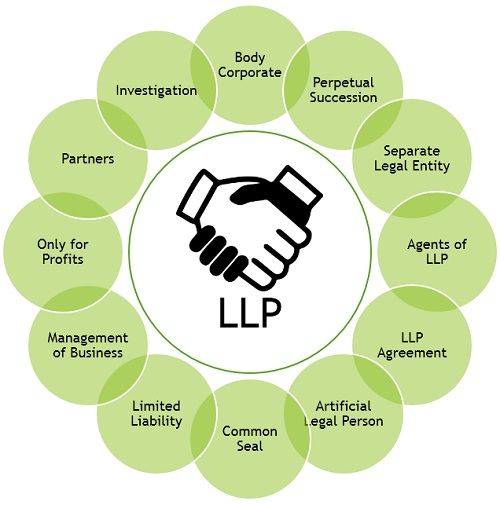User Intent
Introduction
A Limited Liability Partnership (LLP) is a business structure that blends aspects of partnerships and corporations. Many professionals and business owners choose LLPs due to their flexible management and limited liability features. However, a common question arises: Are LLP members considered employees? This article explains this in detail, covering legal definitions, applications, benefits, and limitations.
Definition of LLP Members and Employees
- LLP Members:
- Individuals or entities that contribute capital and participate in the business operations of an LLP.
- They have ownership rights and share profits.
- Governed by an LLP Agreement.
- Employees:
- Individuals hired under a contract of employment.
- Receive salaries, benefits, and are subject to employment laws.
- Do not hold ownership in the business.
Since LLP members share profits and risks, they are generally not considered employees under labor laws.
Application: Are LLP Members Considered Employees?
The classification depends on the legal and contractual framework of the LLP:
- In most jurisdictions, LLP members are not employees because they do not have an employer-employee relationship.
- They receive profit shares rather than salaries.
- Members have decision-making rights, which employees typically do not have.
- However, in some cases, LLP members can have dual roles (e.g., being both a member and an employee under a separate contract).
Thus, legal classification varies based on the LLP Agreement and local employment laws.
Benefits of LLP Members Not Being Employees
- Flexibility in Management: LLP members can make decisions independently, unlike employees who follow employer directives.
- Profit Distribution: Members receive profit shares, which can be more lucrative than fixed salaries.
- Limited Liability Protection: Unlike general partnerships, members are not personally liable for LLP debts.
- Tax Benefits: LLPs often have pass-through taxation, meaning members report income on personal tax returns rather than corporate taxes.
- No Employment Law Constraints: LLPs do not need to provide employment benefits like insurance, pensions, or paid leave to members.
Limitations of LLP Members Not Being Employees
- No Fixed Salary: Members rely on profit sharing, which may be unstable.
- Lack of Employment Benefits: Members are not entitled to sick leave, retirement plans, or insurance.
- Liability in Some Cases: While liability is limited, personal guarantees or misconduct can still make members liable.
- Complex Legal Compliance: LLPs require proper agreements, filings, and documentation to maintain compliance.
Comparative Table: LLP Members vs. Employees
| Feature | LLP Members | Employees |
|---|---|---|
| Ownership | Yes | No |
| Profit Sharing | Yes | No (Fixed Salary) |
| Decision-Making | Yes | No |
| Tax Treatment | Pass-through taxation | Salary-based taxation |
| Employment Benefits | No | Yes |
| Legal Relationship | Partner-based | Employer-Employee |
| Liability | Limited | None |
Conclusion
In most cases, LLP members are not considered employees because they hold ownership stakes and share profits instead of receiving fixed salaries. This distinction is crucial for legal, tax, and financial planning. However, in certain scenarios, members may have dual roles as both owners and employees if separate contracts exist. Understanding these classifications helps in making informed business and legal decisions.
FAQs
1. Can an LLP member also be an employee?
Yes, if the LLP agreement allows for it and a separate employment contract exists.
2. Do LLP members receive a salary?
No, they receive profit shares instead of a fixed salary.
3. Are LLP members entitled to employment benefits?
No, they are not covered under employment laws and do not receive employee benefits.
4. How is taxation handled for LLP members?
LLPs usually follow pass-through taxation, meaning members report income on their personal tax returns.
5. What happens if an LLP member wants to leave?
Exit terms are primarily governed by the LLP Agreement. This document clearly outlines buyouts, liabilities, and the transfer of ownership. Moreover, it ensures that all partners understand their rights and responsibilities. Additionally, it helps prevent disputes by setting predefined conditions for exits.

